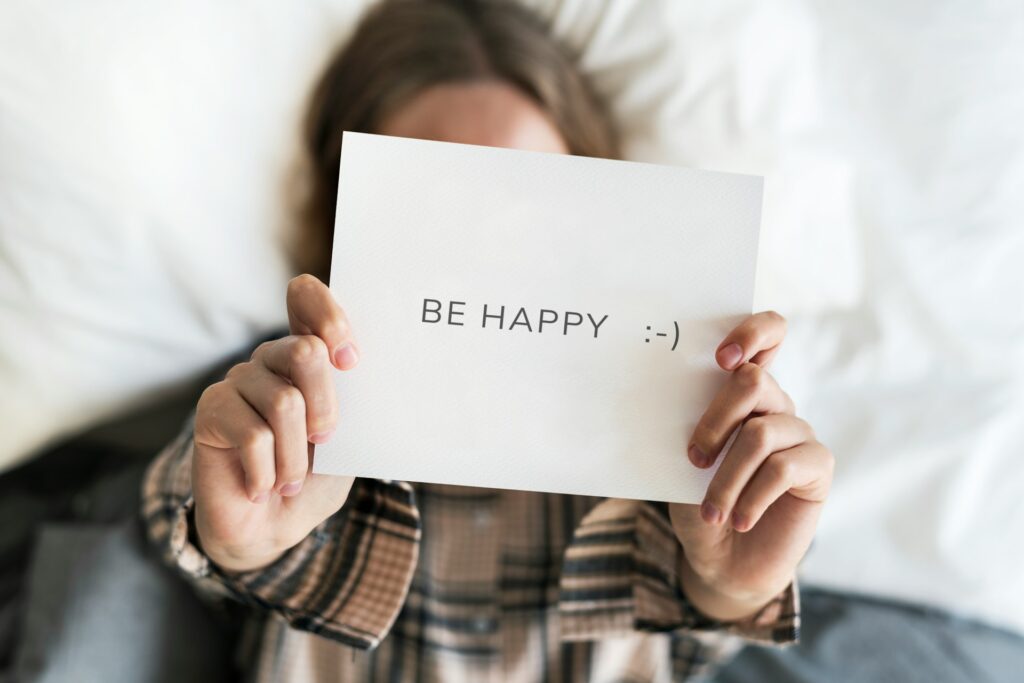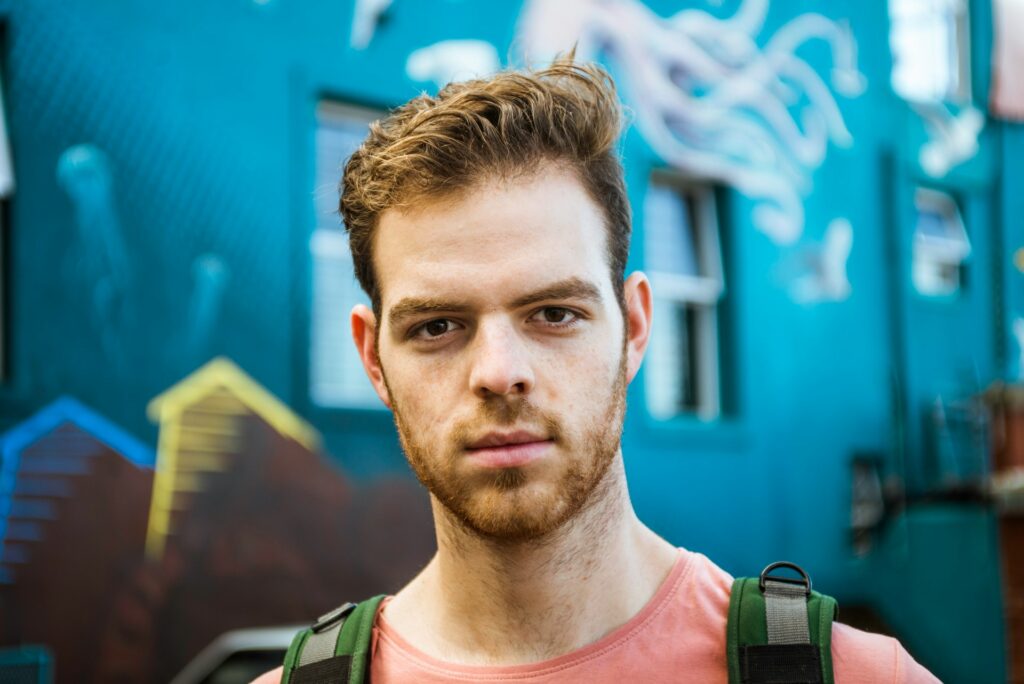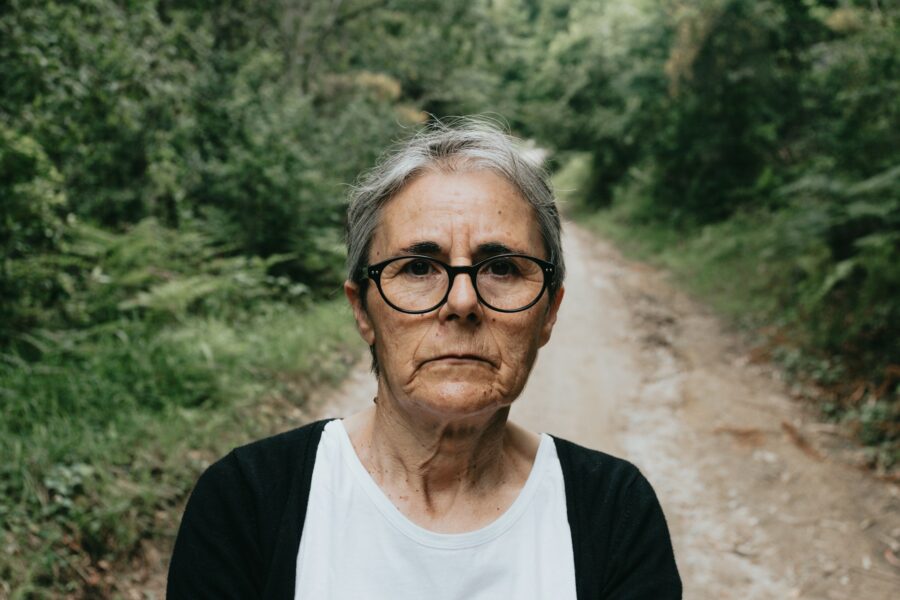There’s a difference between optimism and pretending everything’s fine.

One is hopeful; the other is dishonest. And right now, when people are already worn out, overwhelmed, and quietly trying to keep it together, toxic positivity isn’t just unhelpful—it’s actually doing harm.
Toxic positivity isn’t about being cheerful or looking on the bright side. It’s the pressure to be upbeat at all costs, even when things are falling apart. It shows up in those well-meaning but dismissive phrases like “just stay positive” or “it could be worse,” often said with a smile that feels more like a dismissal than support. And in the aftermath of a pandemic, during a cost of living crisis, and with so much uncertainty in the air, this kind of empty cheerfulness feels more grating than ever.
It shuts down real conversations.

When someone opens up about how they’re feeling, and the response is a chirpy “but at least you’ve got your health!” what they hear is: this isn’t a safe space to talk. Toxic positivity makes people feel like their struggles are too much, too negative, or simply unwelcome. Instead of support, they get silence or sugar-coating. And over time, that leaves people feeling more isolated, not less.
According to the Mental Health Foundation, nearly one in three adults in the UK say they feel ashamed when struggling with their mental health. And when you add a culture that pushes constant positivity, it only makes that shame harder to shake.
It puts the blame on the person who’s struggling.

Toxic positivity turns pain into a personal failure. If you’re not smiling through it or seeing the silver lining, you’re somehow not trying hard enough. This kind of messaging tells people their sadness is a choice, their anxiety is a mindset problem, and their burnout is just a lack of gratitude. It ignores the actual reasons people are struggling—money worries, health problems, grief, exhaustion—and turns it all into a matter of attitude.
That’s not just wrong; it’s damaging. It adds guilt to people who are already stretched thin and can delay them getting proper support. Being told to think positive can feel more like being told to keep quiet.
It stops people from processing what they’re feeling.

You can’t work through something you’re not allowed to acknowledge. And you certainly can’t move past it if you’re being told to ignore it. Pushing positivity onto someone who’s grieving, anxious, or angry doesn’t make those emotions disappear; it just forces them underground.
Research from University College London found that emotional suppression is linked with higher levels of psychological distress. UCL Study When people feel they can’t talk about what’s going on, they carry it alone, and it weighs heavier.
It can be incredibly isolating.

On the surface, toxic positivity might seem like encouragement. But to someone who’s struggling, it can feel like being left behind. It says, “We’re all fine, why aren’t you?” which is the last thing anyone wants to hear when they’re already feeling low. Instead of feeling seen, people feel shut out.
This pressure to present a perfect front also plays out online. Social media is filled with motivational quotes and curated lives, where hardship is glossed over with hashtags and filters. It creates an environment where people feel they have to perform happiness, even when they’re struggling behind the scenes.
A study from the University of Birmingham found that people who spend more time editing and filtering their selfies report lower self-esteem and body image. The same can be said for how we edit our emotions. The more we fake it, the worse we tend to feel.
It leaves no room for complexity.

Life is rarely all good or all bad. Most of the time, it’s somewhere in between—messy, layered, full of contradictions. But toxic positivity wants everything to be simple: happy, grateful, fine. And when people try to share anything outside of that narrow lane, they’re met with discomfort or silence.
This forces people into emotional extremes. You’re either ‘positive’ or you’re a problem. You’re either coping or you’re dramatic. There’s no space for being human—for having mixed feelings, for not knowing what you need, for being unsure whether things are okay or not.
There are a lot of terrible things going on in the world.

Yes, it’s easy to give up all hope and fall into a pit of existential dread, but you can also go too far in the opposite direction by ignoring everything that’s going on in the world. If you’re an empathetic and caring human being, the things happening around the world right now are bound to get you down sometimes. Pretending like everything is fantastic isn’t just delusional, it’s also really harmful.
It’s important to acknowledge suffering and injustice in the world. When we don’t, that’s when it’s allowed to continue and things get a whole lot worse.
So what can we do instead?

Let people feel how they feel. Don’t rush to fix it or wrap it up in positive spin. Just listen. Say things like, “That sounds really hard,” or “I’m here if you want to talk.” It might feel small, but it makes a huge difference.
We need honesty more than ever right now. Real, messy, honest conversations where people can say, “I’m not okay,” without being told to smile. And where support doesn’t come with a motivational quote attached.
There’s nothing wrong with hope or with looking for good moments in the middle of hard times, of course.

That being said, forcing positivity, especially when someone is already struggling, doesn’t help them; it just shuts them down. In a world that keeps asking us to pretend everything’s fine, being real is one of the kindest things we can do for each other.
Try to find a balance between optimistic hope and grounded realism. It takes practice and a lot of effort, but it’s definitely the best way to live.


